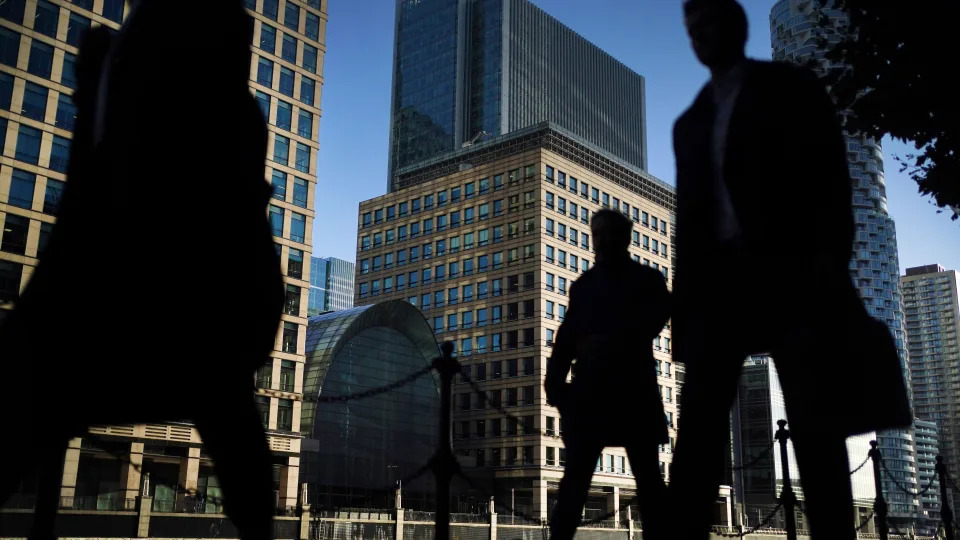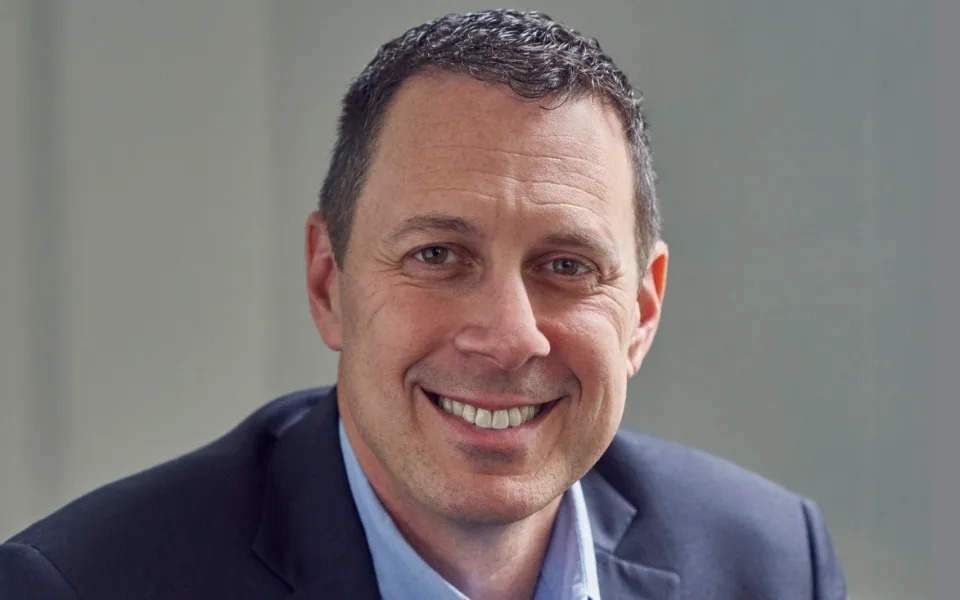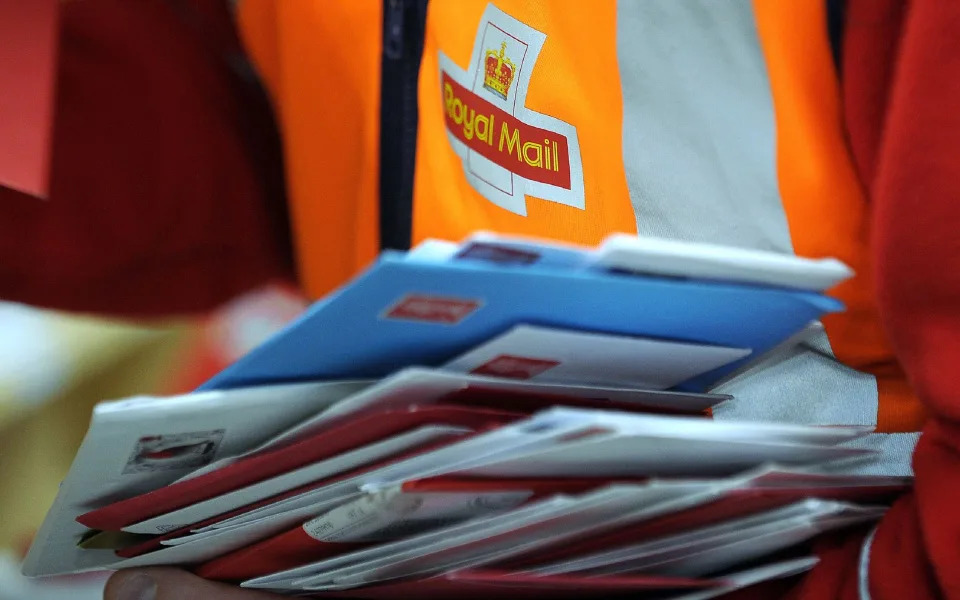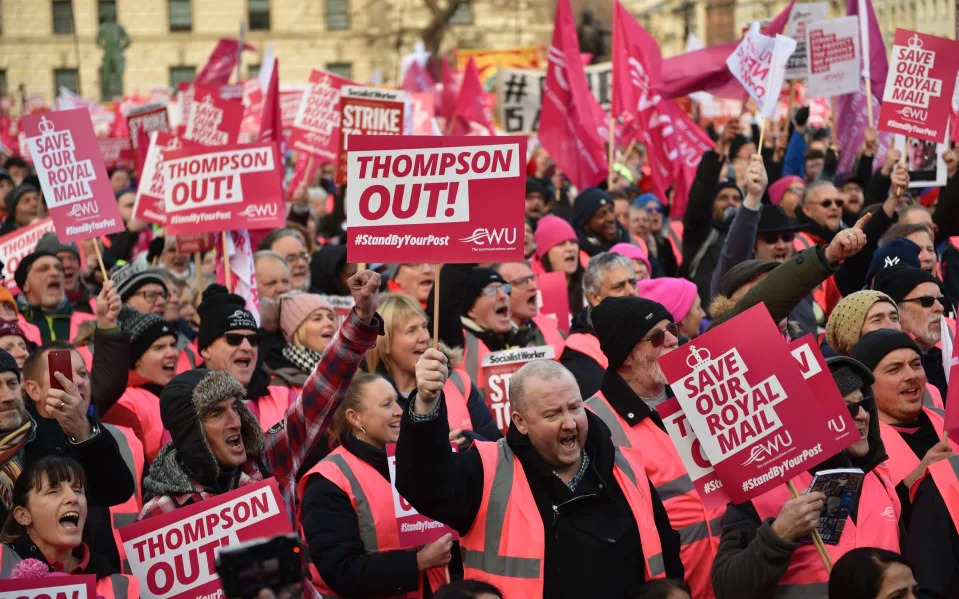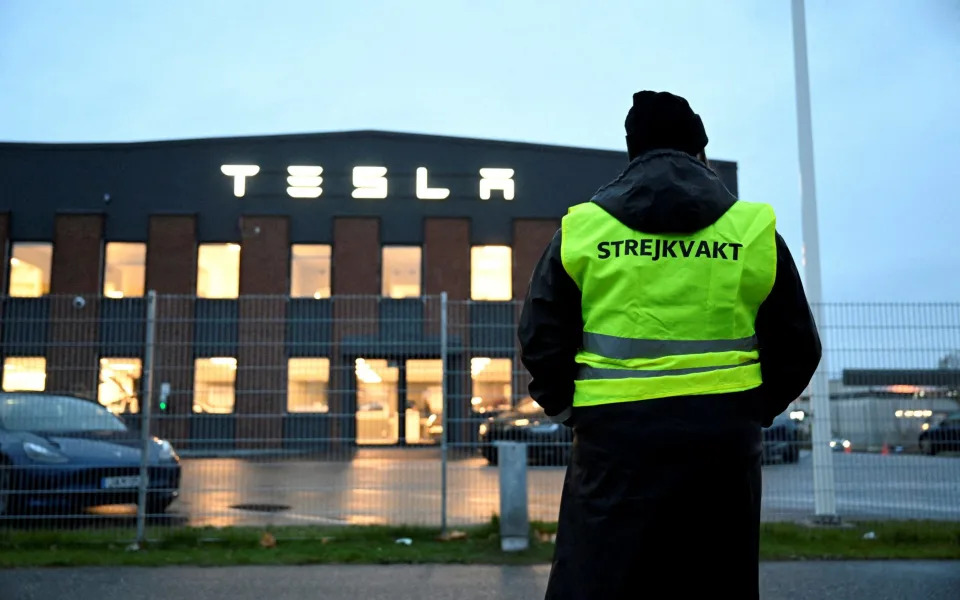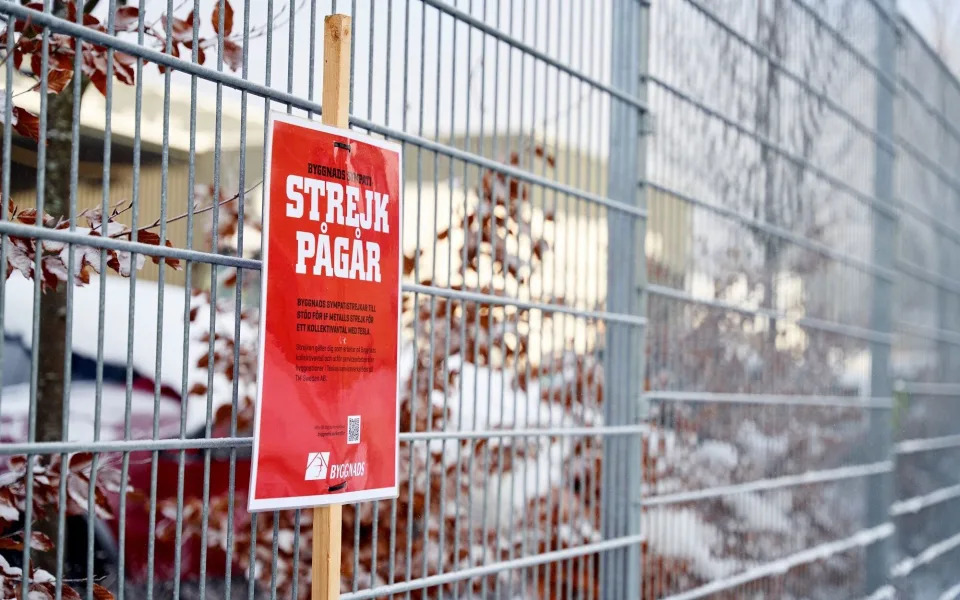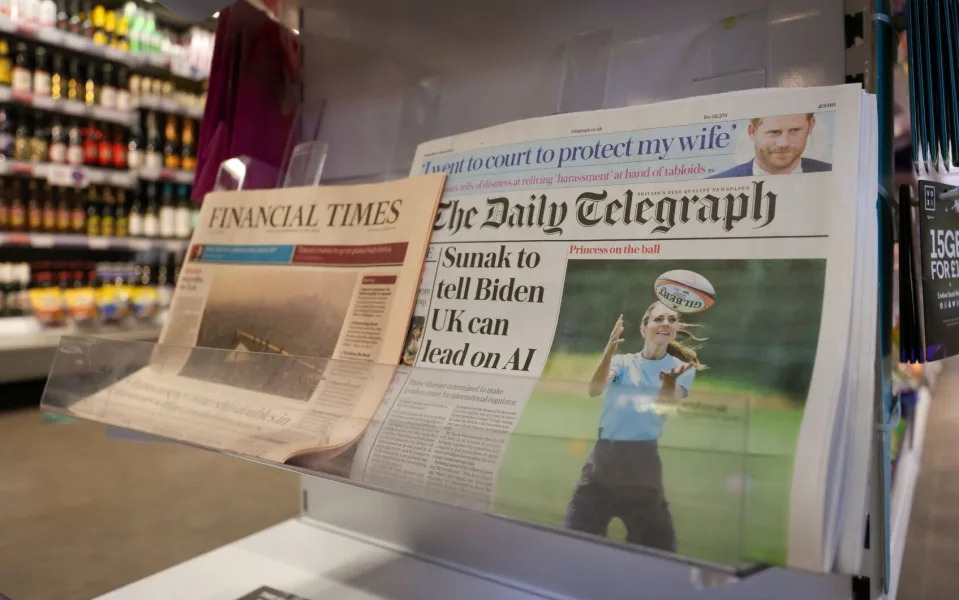Charles Kaiser
The Guardian
Sat, 9 December 2023

Photograph: Stephen Lovekin/Shutterstock
Ryan Grim’s sprawling new book is called The Squad, but it is about much more than Alexandria Ocasio-Cortez and her progressive allies in the US House. It does provide mini-biographies of AOC, Ilhan Omar, Rashida Tlaib, Ayanna Pressley, Cori Bush and Jamaal Bowman, but it should have been called The Squad and Its Enemies, given the amount of space it devotes to their adversaries.
Related: ‘She got so mad at me’: book on the ‘Squad’ details AOC-Pelosi clashes
Grim also gives a blow-by-blow replay of the 2020 Democratic presidential primaries, and extremely detailed accounts of how Joe Biden’s infrastructure and domestic spending bills finally made it through Congress.
The book seems to have been written at great speed without much time for editing. At times that makes it a little hard to follow. For example, on page 30, we learn that Justice Democrats, an organization founded in 2017 to elect “a new type of Democratic majority in Congress”, suddenly pulled out of AOC’s first race because she wasn’t raising enough money herself.
“She was crushed and considered dropping out,” Grim writes. But then, two pages later, we learn that Justice Democrats “just went all in and just diverted it all” to AOC. “We stopped raising money for anybody else,” an organizer explains.
There are small, easily checkable errors. The Rayburn House Office Building, we’re told, was “built in the 1950s during the postwar boom”. Actually its cornerstone was laid in 1962 and the building opened in 1965.
Grim is a big fan of hard-left, hard-edged judgments against middle-of-the-road Democrats. On the very first page, we are told of the “rubble of the Obama administration’s pivot to austerity in the wake of the 2008 financial crisis”. Nine pages later, Obama is accused of encouraging more home foreclosures “to keep the bailed-out banks alive”.
According to Grim, the present House Democratic leader, Hakeem Jeffries of New York, has a “visceral hatred toward the radical left”; gets “roughly half” of his campaign money from corporate political action committees; and has the additional sins of being a “vocal supporter of charter schools”, an ally of the former New York governor Andrew Cuomo and a supporter of Hillary Clinton.
Grim is on more solid ground when he attacks the Problem Solvers, a group that “claimed it would solve problems by bringing together moderate Democrats and reasonable Republicans for common sense solutions” but whose primary goal is to block “tax increases on private equity moguls and hedge fund executives” who funded dark money groups linked to No Labels, the “centrist” group threatening to run a third-party candidate for president, potentially hurting Joe Biden and helping Donald Trump.
Grim offers very long sections about the debilitating effects of dark money on the entire political system, and the negative effects of the extremely large amounts spent by the American Israel Public Affairs Committee (Aipac) and the rest of the lobby for Israel. He is at his best when he describes Washington alliances that are mostly invisible to casual students of the Capitol scene. There is a long narrative about Josh Gottheimer, a former Clinton intern and speechwriter turned New Jersey congressman elected with the support of Aipac, a Problem Solvers founder .
Gottheimer’s most important ally is Mark Penn, a key Hillary Clinton strategist and the former head of the PR powerhouse Burson-Marsteller. Gottheimer, a congressional champion of Israel, was paradoxically aided by Penn’s longtime work for Saudi Arabia. The Saudis and the United Arab Emirates “built an alliance with the Israeli lobbying operation in Washington”, Grim explains. “Israel won Arab cred from the two autocracies even as its settlements in occupied Palestinian territory were rapidly expanding. And the autocracies were helped by association with one of Washington’s most powerful lobbies.”
“Israel and the Arabs standing together is the ultimate ace in the hole,” an Israeli embassy official tells the author.
Because of this unholy alliance, Gottheimer became one of the “top recipients of cash” from lobbyists and lawyers working for Saudi Arabia in his first re-election cycle.
Related: The Fabulist review: timely tale of the rise and fall of George Santos
We also learn in detail how the mere threat of opposition by Aipac in his Florida congressional primary transformed Maxwell Frost’s position on the Middle East. The young Democrat had signed a pledge to “heed the call of Palestinian civil society for Boycott, Divestment, and Sanctions” (BDS) and called for “an end to US political, military and economic support to Israel, and to all military security and policing collaborations”. But after Richie Torres, a New York Democrat, befriended Frost, the Floridian ended up “a candidate who wanted no strings attached to military aid to Israel” and who considered BDS “extremely problematic and a risk to the chances of peace and a two-state solution”.
Stories like this lend credence to the judgment of Summer Lee of Pennsylvania, who survived her own “near-death experience” at the hands of the Israel lobby. She tells Grim she knows people deterred from running for office “because this is a topic that they know will bury them. There’s absolutely a chilling effect”.
Lee continues: “It’s very hard to survive as a progressive Black, working-class-background candidate when you are facing millions and millions of dollars.” This also “deters other people from ever wanting to get into it. So then it has the effect of ensuring that the Black community broadly, the other marginalized communities are just no longer centered in our politics”.
As Grim demonstrates convincingly, that is one of the many big costs the US pays thanks to the gigantic role of dark money in its politics.
The Squad is published in the US by Henry Holt & Co
Sat, 9 December 2023

Photograph: Stephen Lovekin/Shutterstock
Ryan Grim’s sprawling new book is called The Squad, but it is about much more than Alexandria Ocasio-Cortez and her progressive allies in the US House. It does provide mini-biographies of AOC, Ilhan Omar, Rashida Tlaib, Ayanna Pressley, Cori Bush and Jamaal Bowman, but it should have been called The Squad and Its Enemies, given the amount of space it devotes to their adversaries.
Related: ‘She got so mad at me’: book on the ‘Squad’ details AOC-Pelosi clashes
Grim also gives a blow-by-blow replay of the 2020 Democratic presidential primaries, and extremely detailed accounts of how Joe Biden’s infrastructure and domestic spending bills finally made it through Congress.
The book seems to have been written at great speed without much time for editing. At times that makes it a little hard to follow. For example, on page 30, we learn that Justice Democrats, an organization founded in 2017 to elect “a new type of Democratic majority in Congress”, suddenly pulled out of AOC’s first race because she wasn’t raising enough money herself.
“She was crushed and considered dropping out,” Grim writes. But then, two pages later, we learn that Justice Democrats “just went all in and just diverted it all” to AOC. “We stopped raising money for anybody else,” an organizer explains.
There are small, easily checkable errors. The Rayburn House Office Building, we’re told, was “built in the 1950s during the postwar boom”. Actually its cornerstone was laid in 1962 and the building opened in 1965.
Grim is a big fan of hard-left, hard-edged judgments against middle-of-the-road Democrats. On the very first page, we are told of the “rubble of the Obama administration’s pivot to austerity in the wake of the 2008 financial crisis”. Nine pages later, Obama is accused of encouraging more home foreclosures “to keep the bailed-out banks alive”.
According to Grim, the present House Democratic leader, Hakeem Jeffries of New York, has a “visceral hatred toward the radical left”; gets “roughly half” of his campaign money from corporate political action committees; and has the additional sins of being a “vocal supporter of charter schools”, an ally of the former New York governor Andrew Cuomo and a supporter of Hillary Clinton.
Grim is on more solid ground when he attacks the Problem Solvers, a group that “claimed it would solve problems by bringing together moderate Democrats and reasonable Republicans for common sense solutions” but whose primary goal is to block “tax increases on private equity moguls and hedge fund executives” who funded dark money groups linked to No Labels, the “centrist” group threatening to run a third-party candidate for president, potentially hurting Joe Biden and helping Donald Trump.
Grim offers very long sections about the debilitating effects of dark money on the entire political system, and the negative effects of the extremely large amounts spent by the American Israel Public Affairs Committee (Aipac) and the rest of the lobby for Israel. He is at his best when he describes Washington alliances that are mostly invisible to casual students of the Capitol scene. There is a long narrative about Josh Gottheimer, a former Clinton intern and speechwriter turned New Jersey congressman elected with the support of Aipac, a Problem Solvers founder .
Gottheimer’s most important ally is Mark Penn, a key Hillary Clinton strategist and the former head of the PR powerhouse Burson-Marsteller. Gottheimer, a congressional champion of Israel, was paradoxically aided by Penn’s longtime work for Saudi Arabia. The Saudis and the United Arab Emirates “built an alliance with the Israeli lobbying operation in Washington”, Grim explains. “Israel won Arab cred from the two autocracies even as its settlements in occupied Palestinian territory were rapidly expanding. And the autocracies were helped by association with one of Washington’s most powerful lobbies.”
“Israel and the Arabs standing together is the ultimate ace in the hole,” an Israeli embassy official tells the author.
Because of this unholy alliance, Gottheimer became one of the “top recipients of cash” from lobbyists and lawyers working for Saudi Arabia in his first re-election cycle.
Related: The Fabulist review: timely tale of the rise and fall of George Santos
We also learn in detail how the mere threat of opposition by Aipac in his Florida congressional primary transformed Maxwell Frost’s position on the Middle East. The young Democrat had signed a pledge to “heed the call of Palestinian civil society for Boycott, Divestment, and Sanctions” (BDS) and called for “an end to US political, military and economic support to Israel, and to all military security and policing collaborations”. But after Richie Torres, a New York Democrat, befriended Frost, the Floridian ended up “a candidate who wanted no strings attached to military aid to Israel” and who considered BDS “extremely problematic and a risk to the chances of peace and a two-state solution”.
Stories like this lend credence to the judgment of Summer Lee of Pennsylvania, who survived her own “near-death experience” at the hands of the Israel lobby. She tells Grim she knows people deterred from running for office “because this is a topic that they know will bury them. There’s absolutely a chilling effect”.
Lee continues: “It’s very hard to survive as a progressive Black, working-class-background candidate when you are facing millions and millions of dollars.” This also “deters other people from ever wanting to get into it. So then it has the effect of ensuring that the Black community broadly, the other marginalized communities are just no longer centered in our politics”.
As Grim demonstrates convincingly, that is one of the many big costs the US pays thanks to the gigantic role of dark money in its politics.
The Squad is published in the US by Henry Holt & Co
.jpg)
